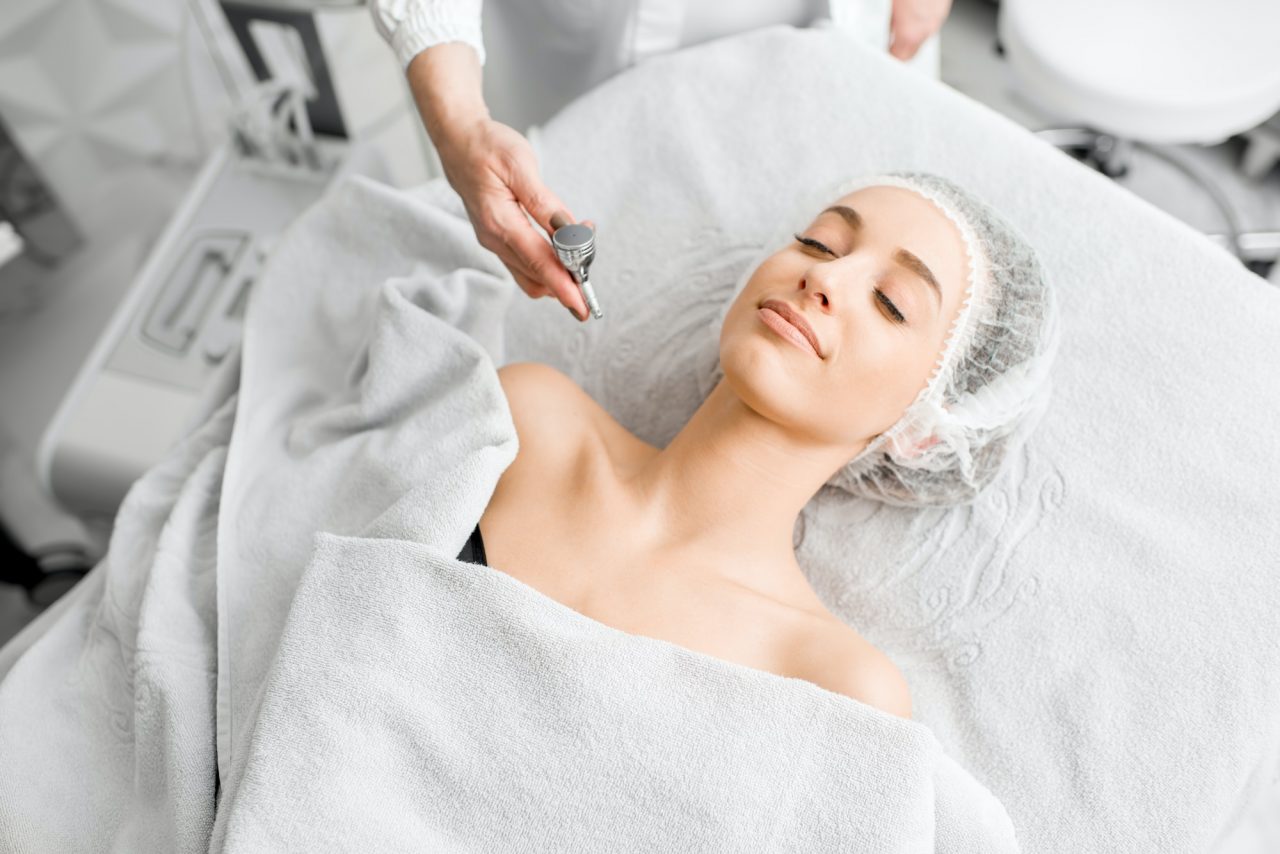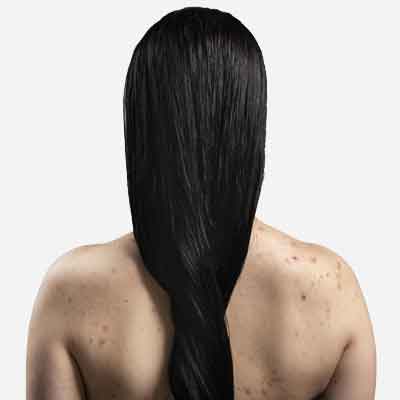Rosacea
Because your skin deserves the best care
Home » Rosacea
Rosacea
Welcome to our page dedicated to dermatology in Edmonton. Here, we provide valuable insights into understanding and managing this common skin condition. Rosacea can cause redness, visible blood vessels, and pimple-like bumps on the face, often triggered by factors like sun exposure, certain foods, and stress. Our goal is to offer comprehensive information and effective strategies to help you achieve clearer, healthier skin. Explore our resources and expert guidance to navigate your journey towards managing Rosacea with confidence.



Rosacea is a chronic skin condition characterized by facial redness, visible blood vessels, and sometimes small red bumps or pustules. It often affects the central part of the face, including the cheeks, nose, and forehead. Rosacea tends to develop gradually and can be triggered or worsened by various factors such as sunlight, certain foods, alcohol, temperature changes, and emotional stress. While the exact cause is not fully understood, it involves a combination of genetic, environmental, and vascular factors. Though incurable, effective management strategies, lifestyle adjustments, and medical treatments can help control symptoms and improve the appearance of the skin.
Types of Rosacea
Erythematotelangiectatic Rosacea
This type is characterized by facial redness, flushing, and visible blood vessels (telangiectasia). Skin may appear sensitive and easily irritated.
Papulopustular Rosacea
Also known as acne rosacea, this type features red bumps (papules) and pustules similar to acne. These can be accompanied by facial redness and sensitivity.
Phymatous Rosacea
This type results in thickened skin and a bumpy texture, often affecting the nose (rhinophyma), but also the chin, forehead, cheeks, and ears.
Ocular Rosacea
Primarily affecting the eyes, this type causes redness, itching, burning, and dryness. In severe cases, it can lead to blurred vision or sensitivity to light.
Granulomatous Rosacea
Rare, this type involves firm, yellow or brown bumps on the face that resemble granulomas.
Conditions We Treat

















Causes of Rosacea
A family history of rosacea can increase your risk of developing the condition, suggesting a genetic predisposition.
Abnormalities in blood vessels, particularly facial blood vessels, may contribute to the persistent redness and flushing characteristic of rosacea.
An overactive immune response may trigger inflammation in the skin, leading to the various symptoms of rosacea.
These microscopic mites that naturally inhabit the skin might play a role in rosacea development when their population increases.

Some studies suggest that an overproduction of cathelicidin, a protein involved in immune responses, may be linked to rosacea's inflammatory symptoms.
Certain triggers, such as sun exposure, temperature changes, spicy foods, alcohol, and stress, can lead to flare-ups in individuals prone to rosacea.
Abnormalities in the blood vessels of the face may contribute to flushing and persistent redness.
Some researchers suggest a possible link between gastrointestinal issues and rosacea, although more research is needed to establish this connection.

Our Rosacea Approach
Our Rosacea Approach at our clinic in Edmonton is built upon a commitment to understanding and effectively managing this chronic skin condition. Rosacea is known to manifest differently among individuals, and that’s why we initiate our approach with a comprehensive assessment. This assessment delves into the specific type of rosacea you have, the triggers that affect you, and the range of symptoms you experience. It serves as the bedrock upon which we craft a personalized treatment plan.
Our seasoned dermatologists then design treatment strategies that are uniquely tailored to your situation. These strategies may encompass a combination of topical creams, oral medications, laser therapy, and lifestyle recommendations to effectively manage your rosacea symptoms. We offer topical treatments to address redness and inflammation, advanced laser and light therapies to target visible blood vessels and improve skin texture, and provide guidance on identifying and avoiding triggers in your diet and lifestyle that can exacerbate rosacea symptoms.
Additionally, we recommend gentle skincare products and routines to manage rosacea-prone skin without causing irritation. Our commitment extends to ongoing monitoring through regular follow-up appointments, ensuring that we track your progress, make necessary adjustments, and provide unwavering support on your journey to managing and alleviating rosacea symptoms.
Treatment Options
Prescription creams, gels, and lotions containing ingredients like metronidazole, azelaic acid, and brimonidine help reduce redness, inflammation, and bumps associated with rosacea.
In some cases, oral antibiotics or other oral medications may be prescribed to control inflammation and manage symptoms.
Our clinic offers cutting-edge laser and light-based treatments to target visible blood vessels, reduce redness, and improve skin texture.
This treatment uses light energy to target redness and visible blood vessels, providing a more even skin tone.
PDL targets blood vessels, reducing redness and flushing associated with rosacea.
Antibiotics can help control inflammation and are particularly effective for papulopustular rosacea.
For severe cases, oral isotretinoin, commonly used for acne, might be considered under close medical supervision.
We recommend gentle cleansers, moisturizers, and sunscreens suitable for rosacea-prone skin.
For rosacea affecting the eyes, we provide recommendations to manage discomfort and dryness.
Get Free Consultation With Our Experts
In conclusion, our Edmonton clinic offers a comprehensive range of advanced treatments for rosacea. With a patient-centered approach, we strive to enhance your skin health and overall well-being. Through personalized strategies, including topical medications, laser therapies, and lifestyle guidance, we are dedicated to helping you manage rosacea effectively. Our experienced team is committed to providing the support and expertise you need to achieve clearer, more comfortable skin and improved self-confidence. Your journey towards healthier skin starts here.
FAQ
Rosacea flare-ups can be triggered by various factors, including sunlight, certain foods (spicy, hot), alcohol, temperature changes, stress, and intense emotions.
No, rosacea and acne are distinct conditions. While they share some similarities, they have different causes, symptoms, and treatments.
Rosacea is a chronic condition without a cure. However, with proper management and treatment, its symptoms can be effectively controlled.
Yes, using gentle, fragrance-free products and avoiding harsh cleansers and exfoliants can help manage rosacea-prone skin.
Laser treatments can significantly reduce the appearance of visible blood vessels, but multiple sessions might be required for optimal results.
As the leading dermatologists in Edmonton, we offer a wide range of cutting-edge treatments and therapies to address various skin concerns. Whether you’re seeking medical dermatology, cosmetic enhancements, or skin rejuvenation, we have the expertise to guide you on your journey to healthier, more radiant skin.
